(wherein… a bad case of garden burnout and cabin fever force us out of our comfort zone)
I thought…
What if I just let it all go
At the height of the harvest season,
Just walked away
~
“Such heresy!” you say
After all that planning, toil, nurturing…
How could you?
~
But isn’t this a measure of success?
That it will carry on just fine without me?
Was all that work for naught? Really?
~
So began the debate on our decision early in September to go on a road trip, something we’d been planning for the last couple of years, but under the current pandemic situation, had more-or-less cancelled.
There is a lot going on here. Somewhere, there are squash. I am not sure where to start. Multiply this 100 times = Garden burnout.
Of course, I had gone into survival mode this last spring and planted a lot more vegetables than usual in anticipation of the coming apocalypse.
Even without the advent of the end of the world, gardeners all know how hard it is to leave, right?
In preparation, the lists of things to be done grow longer. We are faced with the impossibility of it all.
Overachievers easily succumb to this to-do list mentality. We plunge ourselves into a paralyzing overwhelm and bribe ourselves with small rewards.
Misplaced priorities? Perhaps.
But amidst the tangle of tasks, the idea of getting away from it all – getting out on the open road and rolling the windows down, finding a quiet place in the woods to throw down our bags, put our feet in a creek… tempting, indeed.
True confession: I had a serious case of Garden Burnout
I desperately needed to see something beyond the weeds, the ripening fruit, and the fading blooms of summer, all telling me it was time to get busy, get the garden ready for winter, and to get right on it. Garden Burnout is real.
Day in. Day out. This self-quarantine stuff gets old.
“Do it now,” the little voice said. “After family vacations are over but before the rains come. When the crowds are gone. Before the snow falls.”
So much to do! Aggh! –
“Just for a while,” it whispered, “Let it go. None of this really matters. Have you, in your aging years, lost your sense of adventure?”
I questioned: Had the garden become a prison of self-imposed responsibilities?
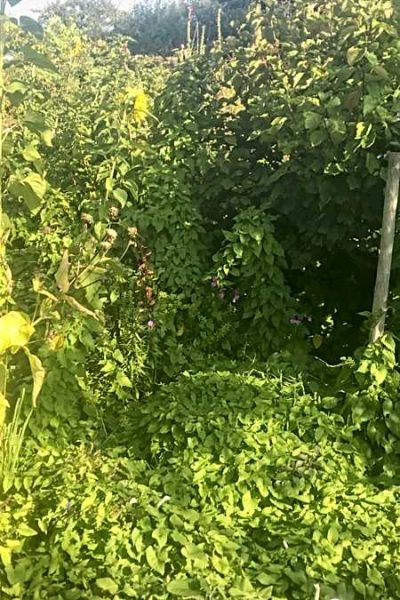
True. We live in strange times.
Visiting family – especially those in the “high-risk” category – could have lethal consequences. Flying was not an option. Driving would be a large undertaking, also not without risk…
With much deliberation and trepidation, we shut the gate and walked away.
– Left the fallen plums for hornets and ants to imbibe their fermenting sweetness
– Left the autumn olives and Cornelian cherries for raucous waxwings and their jaybird cohorts
– Left the luscious greens and tender pods to browsing deer and always “marauding” raccoons
– Left the herbs and flowers and weeds to cast their seeds to wherever they be carried.
We filled our car with 2 weeks’ worth of food, water, and hand sanitizer, stocked up with masks, and headed east to escape the smoke-filled skies.
We limited contact with others, vowing to return in better times.
We sought out quiet secluded places.
We camped among trees by gentle streams that made hushhh sounds in the night.
We woke up to heavy frosts in cold mountain highlands where patches of snow still remained from an early cold front (snow in September!)
We traveled over 3000 miles to see family and return home again.
And we did it safely.
On the way, we found the center of the universe. I have pictures to prove it. (You might have to zoom in. The universe is a big place, and this was a drive-by shooting. Had I taken time to stand under the sign, I could have been the Center of the Universe! What a missed opportunity!)
Places where people flaunted their right to endanger the lives of others, we drove right through without stopping.
Similarly, Yellowstone proved far too busy to linger beyond the usual traffic jams of people gawking at a herd of elk and buffalo.
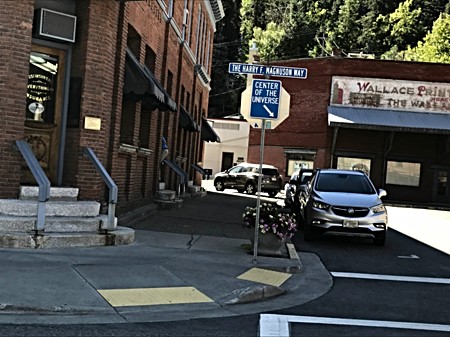
We saw a lot of interesting country.
I realized –
…There is a lot of rock out there.
…The heat at times seemed suffocating; at other times, the cold made us cradle our cups of hot coffee in our hands in the refuge of the car.
…If a place is named “Wind River,” it is named that for a reason. It is good to pay attention to names.
I will remember –
…going over places I’ve been, but now, decades later, seeing it with different eyes. This can be quite healing.
…wondering how many bears might also want the last of the huckleberries I picked near our campsite in the Montana woods
…standing on the edge of a precipice to feel the wind swoop up with such force, it almost blew me over
…hunting down the grave (or one of the supposed graves) of Sacajawea on the Shoshone Reservation and paying our respects to this intelligent woman who could not have foreseen how her assistance to early explorers would change the world
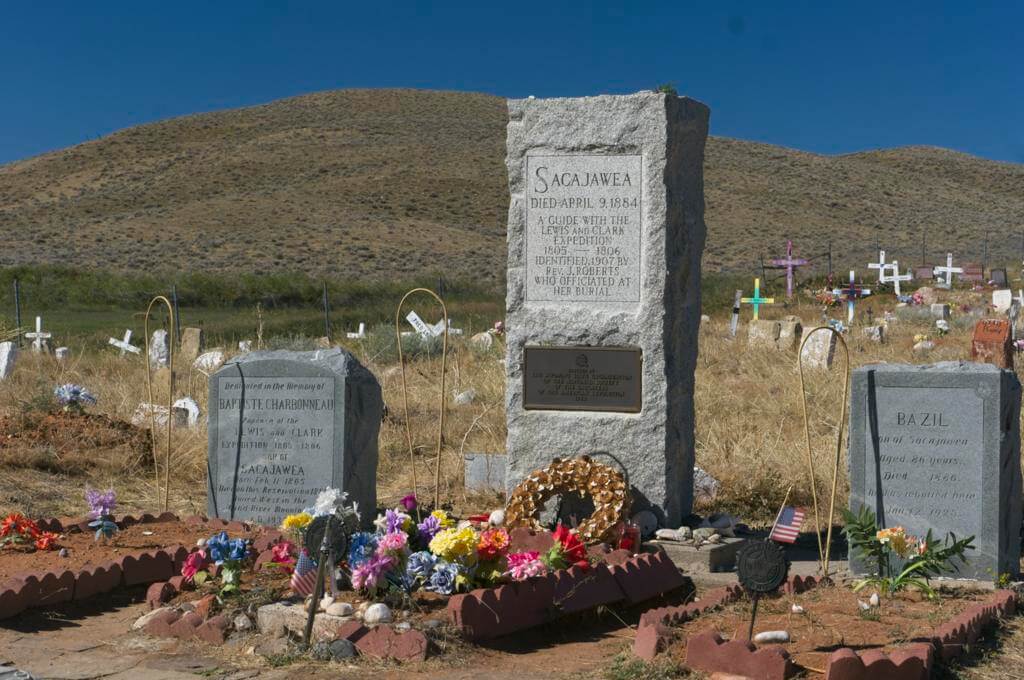
…seeing more stars in a Wyoming night sky than I have ever seen in my life
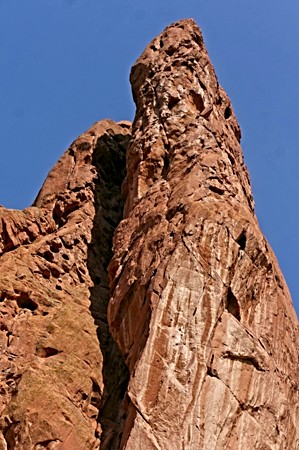
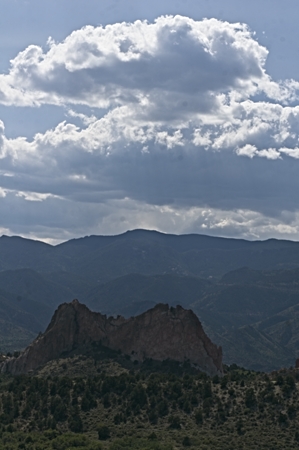
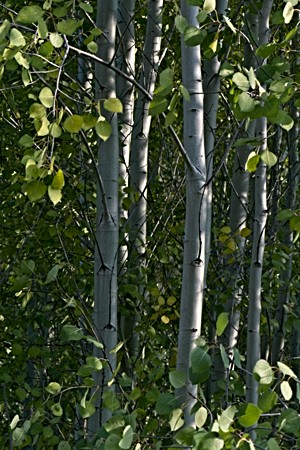
…driving through canyons of red and orange rock that seemed to go on forever. The sun was so bright! The sky so blue! The clouds such puffs of white! So different from the monochromatic haze of the Pacific Northwest.
…listening to the rustle of “whispering” aspens – that is, indeed, what they do – and no wonder Colorado is known for them
…counting long lines of black cylinder railcars loaded with petroleum, crisscrossing wide-open spaces. The Wyoming refineries, small by industry standards (but huge to me), have been supplying an oil-hungry population for over 100 years. In our fuel-efficient vehicle, we had to admit we were some of them. I can’t imagine living and working in these places, but having pulled greenchain in a sawmill, I can relate to being thankful to have a job. We were deep in Trump country and a world away from my little permaculture garden.
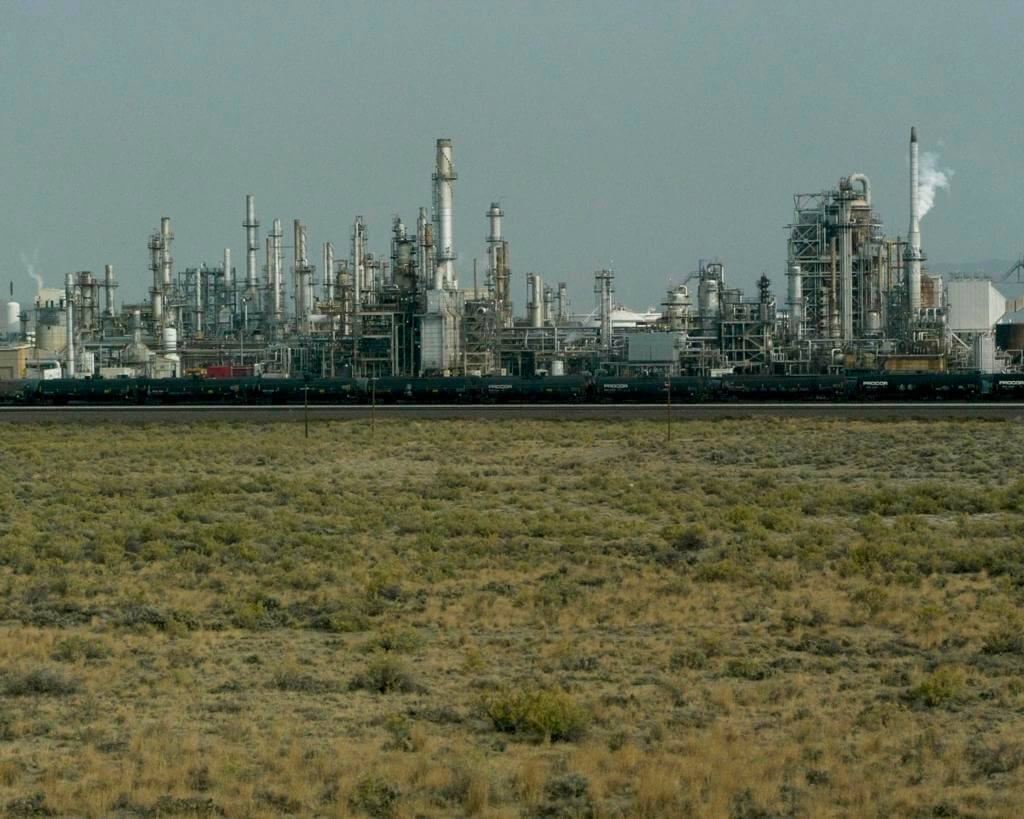
…driving through a ghost town in Idaho, complete with crumbling buildings, a boarded-up saloon, and a population sign of 27 that was crossed out. “Beware of the Angry Sunflowers” said the bold graffiti. Little did we know, we had entered the Hot Zone of a nuclear meltdown and explosion over 30 years ago that resulted in fatalities and extreme contamination of the entire area. People were burned. Most fled. We drove away without getting out of our car.
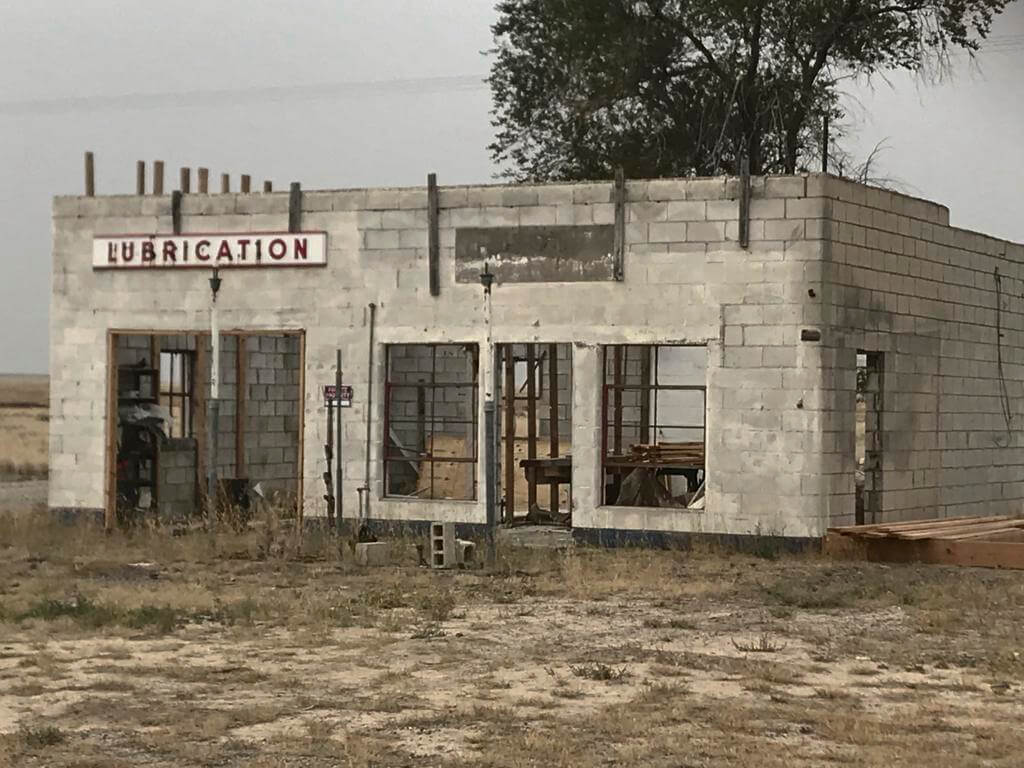
…crossing vast areas that seemed like something out of one of those B movies where the ground rumbles and gargantuan worm creatures emerge to consume unwary travelers
…feeling again like we had entered the Twilight Zone in a nearby town, self-proclaimed as the first city in the world to be “lit” by atomic power. A sign over the park said, “Atoms for Peace,” and in the playground, quiet (possibly disturbed) children played on a rainbow-painted torpedo….
…listening to the wind batter our tent through the night and getting up at 3:00 a.m. to put on our masks. We were camped in what we thought was a sheltered circle of rocks at Craters of the Moon National Monument, but as the wild winds swirled around its perimeter, picking up volcanic dust, and flinging it through the mosquito netting of our tent, we realized it was anything but. We woke up covered in a coarse, black grit.
…following the Idaho Snake (River, that is) and paddling down its quiet waters while watching cascades of water tumbling from its high walls
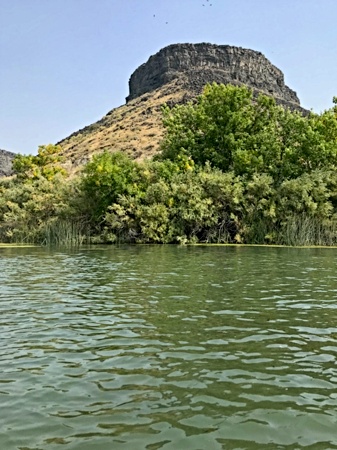
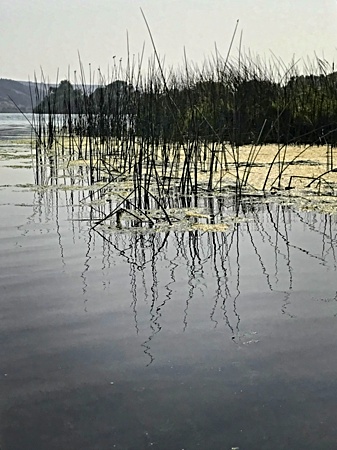
…marveling at beautiful churches in tiny towns along the Oregon Trail and the remnants of the lives of people who had passed…
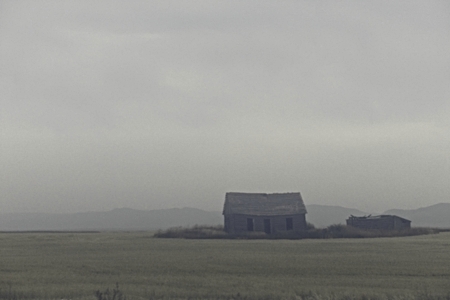
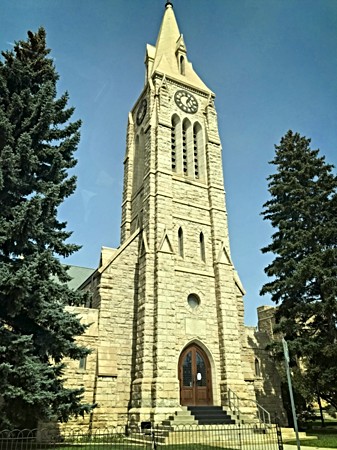
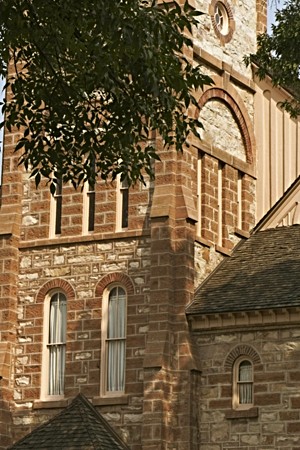
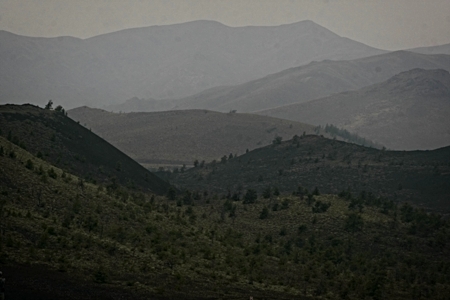
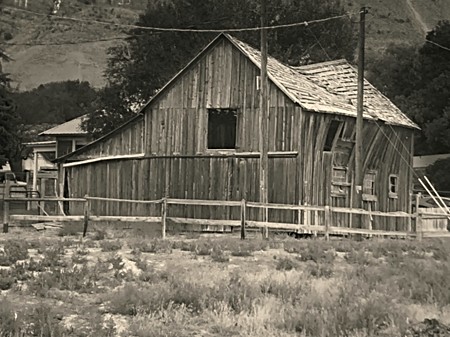
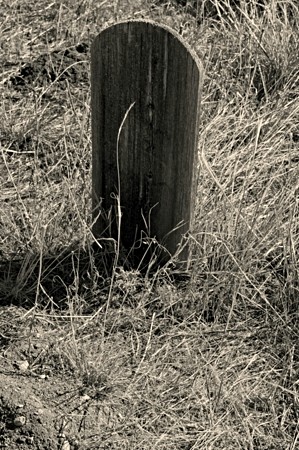
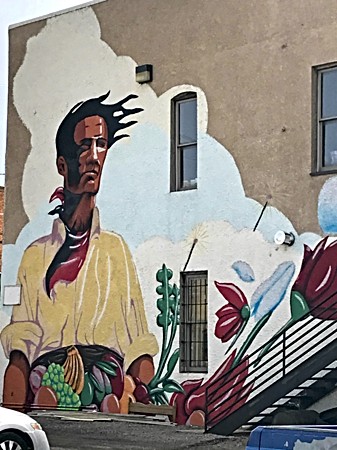
Across miles and miles of monotonous wasteland, I remember thinking –
do we always place a value on something in terms of how we might use it?
I wondered –
Why are there not more goats and sheep?
Why are there not more family gardens?
And we watched a large machine turn over the soil while the winds picked it up and blew it across the acres and acres of gently rolling hills.
What Did We Return To?
Our own little version of paradise – (with all its things left undone)
A new season! Trees turning colors and letting go of their leaves
Fish jumping the cascades and journeying upriver to release their eggs
Herbs and flowers ripening their seeds in the afternoon sun and dispersing them to the wind, the birds, or just letting them fall
Dense fog creeping in across the fields and settling in the trees, where it finally gets so heavy that it falls in droplets to nourish the plants below
Clouds so dark and dense, they drop Real Rain, clearing the air, wetting the earth, cleaning away the soot and smoke. We all – plants and animals alike – breathe deeply in gratitude.
Cooler nights and an increased urgency reverberating among the birds, now gathering in large numbers to form arrows across the sky; letting go of summer, they recognize the approach of fall and winter.
Everything Is Letting Go
This is our home.
Bees are taking advantage of pockets of sunshine and the remaining blooms of borage, squashes, asters.
A family of VERY healthy deer are casually browsing through the garden as if they own the place (and perhaps they do).
Frogs have returned (if they ever left).
Snakes bask in sunshine and slither through the grass, more slowly now.

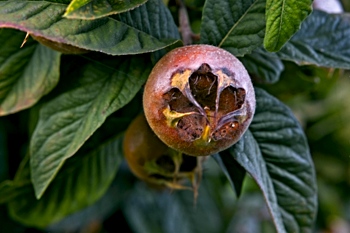
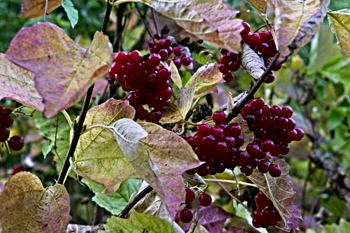
The Realizations
Things survived – if not thrived – in our absence. I’d call that a success.
There are a lot of beautiful places to live, but they mean little without family.
Our home is not large, but it shelters us and reflects who we are. We, too, live in a very unique place on the planet.
Yes, bindweed continues to attempt to take over the world. I have to marvel at its ability to travel and its tenacity. There is no time for hate, frustration, or anger.
My To-do List Is Still There, but My Perspective Has Changed
I don’t need a list of things to check off to feel good about myself or to measure my ineptitude.
To-do lists are everywhere. Every garden site on the Internet is full of them, telling you what to do when and to hurry up and get busy. (I, too, am guilty).
Lessons Learned
Perhaps we need to go back to the beginning.
We began with a vision.
Is the to-do list a path to success or to derision? Is it controlling our lives? What happens when we let it go? What happens if we allow things to be what they are and do whatever it is they do – if only for a while?
Maybe the constant war with bindweed is not how I want to live my life.
Maybe listening to the war in politics is also not how I want to spend my most valuable time.
I don’t need to know the daily death toll.
I get dozens of emails every day from people I don’t even know.
Turn It Off. Step Away.
I ask myself, what, exactly, is Letting Go? Letting go of what? The negativity? The anxiety? The pressure to accomplish? Our ideals? Our best-laid plans? Our preconceived notions?
And when we “let go,” where do we fall? Or what do we do instead? What do we grab in its place, if anything?
What if the to-dos don’t get done? What if (gasp!) something goes to “waste?” Is it perhaps not really wasted but just used in another way?
It is easy to fall back into the to-do trap of unrealistic expectations. For some reason, these tasks take on an urgency that must be done “right now.” I am here to tell you that Right-Now to-do items are time stealers and they often take longer than we think. (Wait. Is that why I am here?)
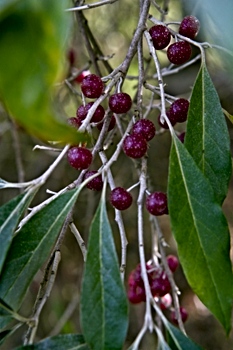

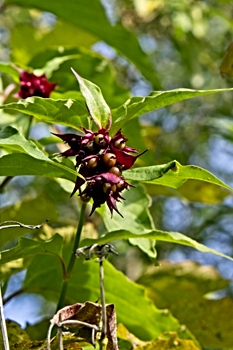
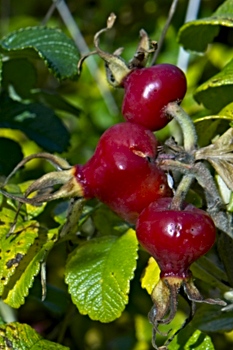
Step Back
When we look at our gardens, do we see only what needs to be done or do we see its many wonders?
Granted, my garden is not a market garden upon which my livelihood depends; that relieves a lot of pressure. Nor is it aligned in orderly rows, blocks, or even circles. It is more of a patchwork with edges that are always shifting. Our garden is a menagerie, a lot of a little of this and that but not a lot of any one thing; plenty for our own needs and some to share. There are herbs, a few veggies, uncommon fruits, fiber and dye plants, plants for pollinators, and shelter for creatures large and small.
I grow a safe haven.
I grow a place where I can observe the transforming color palette of each season;
A place that makes me laugh at the antics of fledglings, flapping their wings in anticipation of being fed;
A place where I can stand in the middle of the organized chaos of a swarm of bees, eventually congregating on the face of an empty hive and declaring it their home;
A place where I can appreciate the slender vine of a Chinese yam wrapping counter-clockwise around a pole and climbing 15 feet in the air while a Malabar squash sprawls out all over the ground, sheltering the earth with its gargantuan leaves, and even sometimes venturing into trees….
These are all small miracles to me.
When the whole world seems to be falling apart, the garden keeps growing, attracting others to its sources of food and protection. Everyone should have a garden – no matter how small – because as you nurture it, it nurtures you. I firmly believe that. There are many many reasons why I love this garden and why I work so hard to encourage every plant to be all that it can be.
But I have to say, once in a while it is also ok to let it all go.
Set aside the to-do lists. They can be blinding to what is truly urgent.
Let go to be able to grasp something else: the present.
Turn off the constant whirring in your head to listen to something immense: the quiet.
Venture out to examine nature’s gardens. Learn from them. Bring those lessons home.
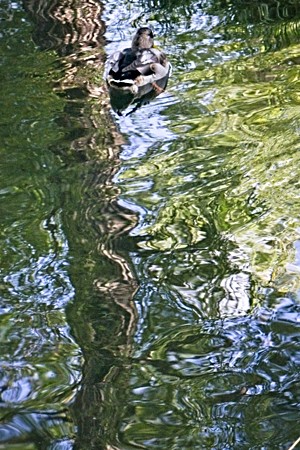
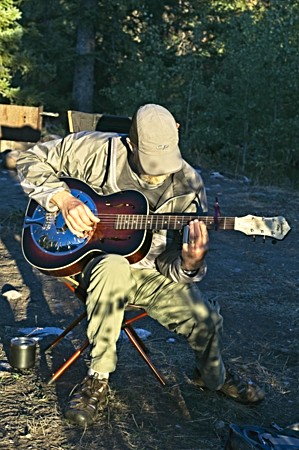
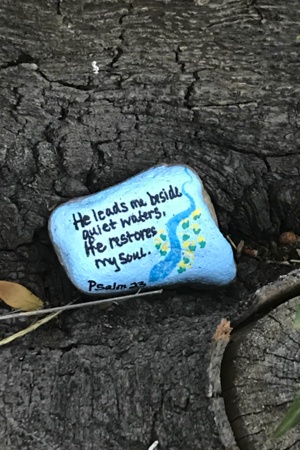
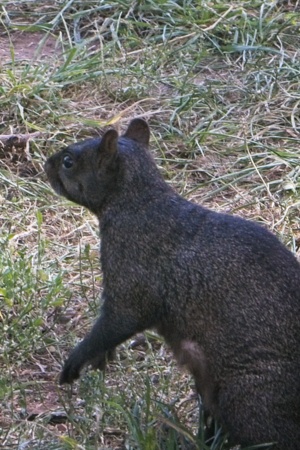
We all have to evaluate what can be done safely and how. For us, seeing the people we love seemed more important than ever, as long as we could minimize risk. As the number of COVID cases continue to rise, I am not advocating irresponsible behavior. One can still “get out” without endangering the lives of others. Seeing new places and spending quiet time in remote areas allowed us to return with new appreciation and perspective.
And when it’s all over, people will probably say, “Well, she certainly had a messy garden!”
Unapologetically true. Another season passes. Carrying on without me, that weedy garden will always be there.
Loved ones might not.
This moment is most certainly already gone.
Make the time if you possibly can.
And be safe.
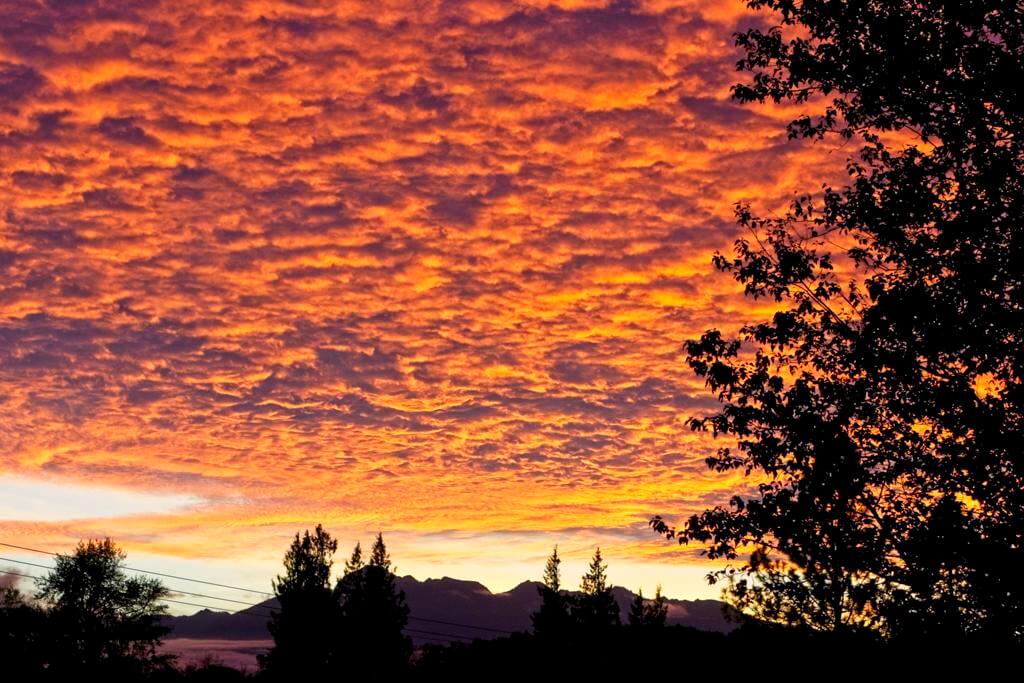
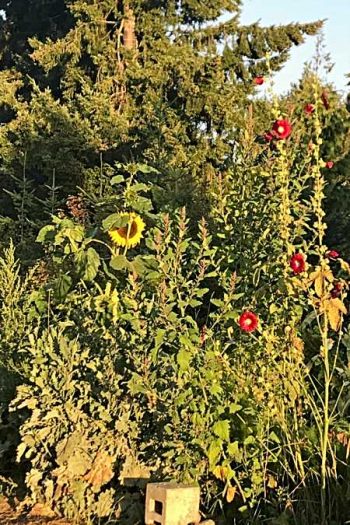
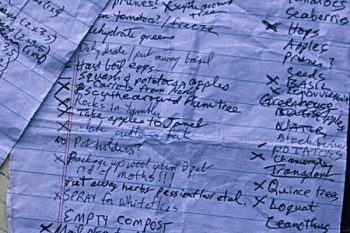
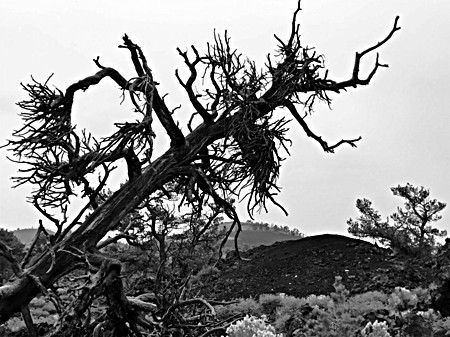
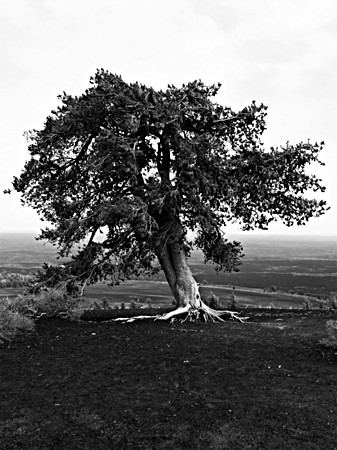
Wonderful!
What if when we “let go” we don’t fall, but soar?
Oooh! I LOVE that idea! Yes, I am going to remember this! Thank you, Mary Anne!